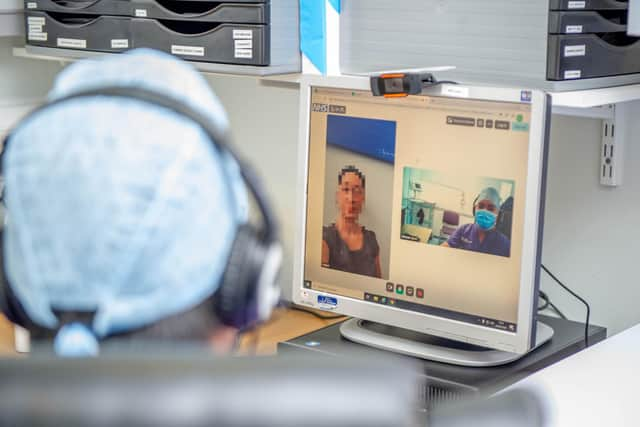Scotland 'must act quickly' on abortion services as new study shows women 'overwhelmingly support' telemedicine provisions
Women who accessed abortions during the pandemic “overwhelmingly support” telemedical abortion, a new study from the British Pregnancy Advisory Service (BPAS) has shown.
Yet, despite backing from doctors and women’s organisations, the Scottish Government has failed to implement permanent telemedical provisions.
Advertisement
Hide AdAdvertisement
Hide AdIn England and Wales, telemedicine abortion was made permanent early this year – a decision “warmly welcomed” by the Faculty of Sexual and Reproductive Healthcare and the Royal College of Obstetricians and Gynaecologists.


The change means women will have continued access to home use of the first pill used for an early medical abortion (mifepristone), following a virtual consultation with a qualified nurse or midwife.
Across the UK during the pandemic, the service was introduced on a temporary basis – and is still available in Scotland – for those during early stages of pregnancy.
Yet, there are concerns that if the service is not made permanent, many women in Scotland could lose access to it.
In the report published in the British Medical Journal, researchers interviewed 15 women who accessed abortion in Scotland and another 15 women who accessed the service in Wales and England between July and December 2021.


The advantages of telemedicine women cited were convenience, privacy, control, and comfort in the home environment.
Telemedicine was also more affordable than other options and allowed them to fit the abortion around other caring and work responsibilities.
Comments include: “To not have to actually see anyone face to face, was really great actually...there’s that fear of being judged, of feeling ashamed. ”
Advertisement
Hide AdAdvertisement
Hide AdResearchers concluded the Scottish Government should make this a permanent option for women in Scotland.
Dr Patricia Lohr, first author of the Covid permissions study and medical director of BPAS, told Scotland on Sunday: “The women we interviewed were overwhelmingly supportive of the telemedical model and use of medical abortion drugs at home, whether they had a medical or surgical abortion themselves.
"Scotland has always been a leader regarding medical abortion in this country. This study provides strong support for Scotland to move more quickly on their decision, aligning with the rest of Britain.”
Dr Lohr added: "The safety and effectiveness of medical abortion via telemedicine are clear.
"We now understand the importance of this model to women having abortions, providing strong support for its continuation.”
In a letter to Women’s Health Minister Maree Todd, BPAS and Engender advocated “in the strongest possible terms” that telemedical abortion should be made permanent.
The letter was signed by 28 groups, including Back Off Scotland, who are advocating for 150m anti-abortion protest buffer zones to be implemented around abortion providers.
Lucy Grieve from Back Off Scotland said: “The Women’s Health Minister is doing nothing on this. Scotland is trailing behind in not even telemedicine but the implications for telemedicine.
Advertisement
Hide AdAdvertisement
Hide Ad"There is zero evidence based reasoning as to why telemedical abortions should not be made permanent – it is simply gatekeeping and that is very worrying.”
The Scottish Government said it is “currently reviewing” the options for continuing medical abortion at home and will provide an update “soon”.
A final report on the evaluation of early medical abortion is due in Autumn 2022.
Comments
Want to join the conversation? Please or to comment on this article.
